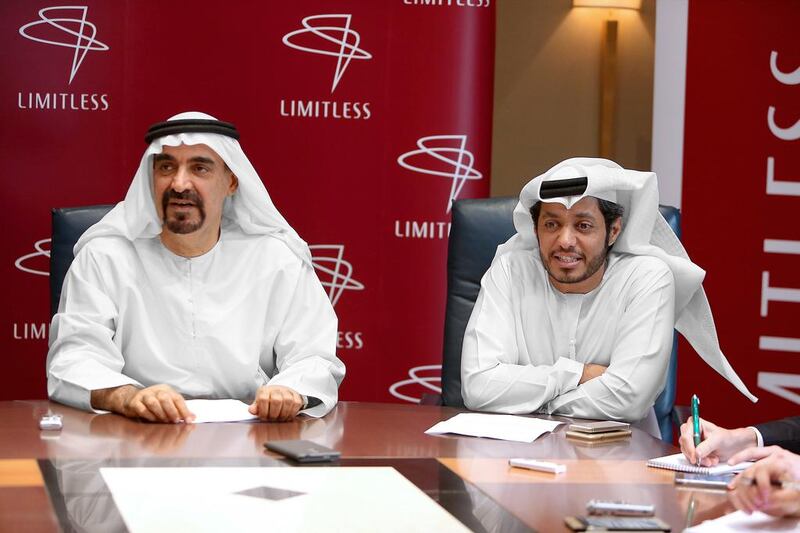Dubai-based Limitless has made progress on its debt repayment.
The developer plans to repay Dh2.07 billion, or 42 per cent of its outstanding debt, and has won the approval of 90 per cent of banks involved on a revised deal to restructure its debt by extending the remaining payments to 2018, its chairman said yesterday.
Limitless will repay Dh1.9bn to banks and Dh176 million to trade creditors.
The company sold half of its 14 million square metre land bank in the Saudi capital Riyadh to the Saudi property developer Al Akaria for Dh2.07bn.
The deal was worth 2.13bn Saudi riyals, according to Al Akaria’s statement to the Saudi stock exchange posted in October last year.
Limitless, which was hard hit by the financial crisis, has been in talks with creditors for more than a year about a revised restructuring plan. It had received an extension to a US$400m debt repayment that was due on December 31 last year.
State-owned Limitless had agreed in 2012 to restructure its Dh4.45bn debt by 2016.
“We are asking for 2018 because we think it is achievable and we have to have ample time to enable us to perform,” said Ali Rashid Lootah, the chairman of Limitless.
“In 2018 [Limitless] will be debt-free and it will be making profit hopefully before 2018.”
He declined to give details about the revised restructuring plan currently in negotiation with banks.
But he expects the remaining 10 per cent of banks to agree to the terms of the revised plan following the payment announcement. About 90 per cent of 18 banks are on board. Some 60 per cent of the total debt of Dh4.45bn is held by local banks.
“We are sure the banks will be very cooperative with us on the revised restructuring plan to enable us to perform and meet our obligations towards them, and towards trade creditors and towards our investors in Downtown Jebel Ali,” said Mr Lootah.
“I think we are in a better position than the earlier restructuring plan.”
The firm, which has assets in the UAE, Saudi Arabia, Vietnam and Russia, is planning to use proceeds from its Dubai projects, primarily in Downtown Jebel Ali area, to help generate income in the coming phase.
Overseas projects are “still going on”, Mr Lootah said, without providing further details.
“So that’s [Dubai] on our radar screen. That will really give us really good income for the company and it will give us flexibility also to sell some apartments in a unique location,” said Mr Lootah. “We have more than enough [cash] but you know we have to keep the company running and we have to continue developing.”
The Jebel Ali project will have demand because of its proximity to the Al Maktoum airport, Expo 2020 site and infrastructure in the area despite the softening of real estate prices in the residential sector, said Mr Lootah.
The company is also in talks with different entities to cooperate in projects overseas, initially as development adviser and project manager, he said, without providing more details.
Limitless, which was formerly under Dubai World, is one of several Dubai-based companies that suffered from the financial crisis.
During the global crash, Dubai property prices plummeted by more than 50 per cent and Limitless was forced into its debt restructuring programme.
dalsaadi@thenational.ae
Follow The National's Business section on Twitter






